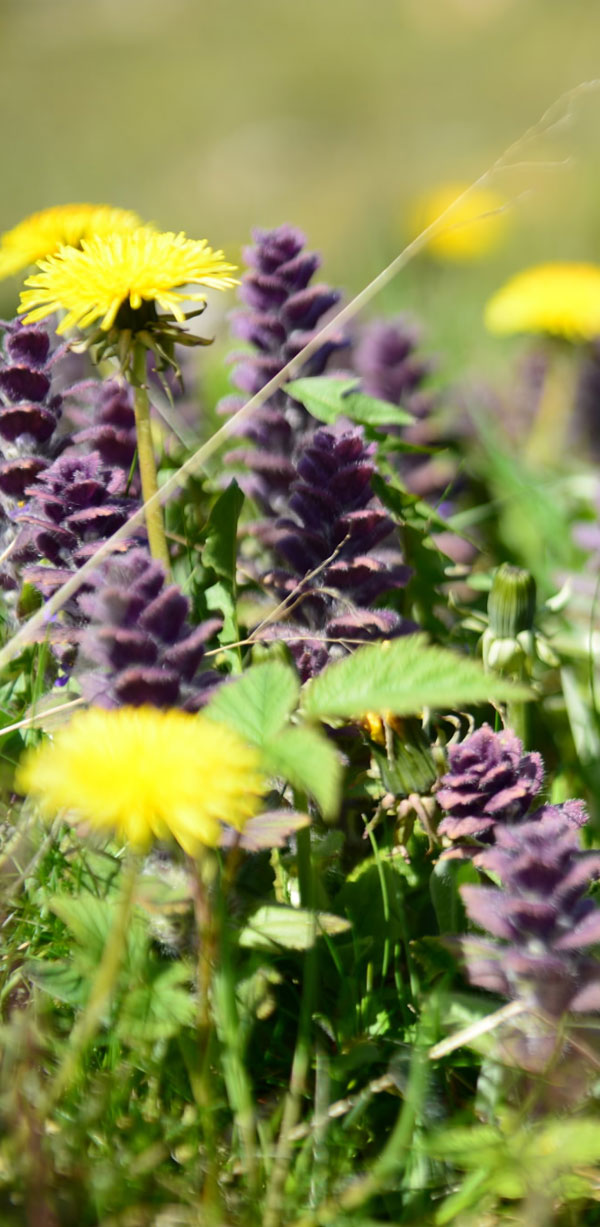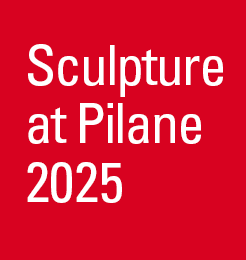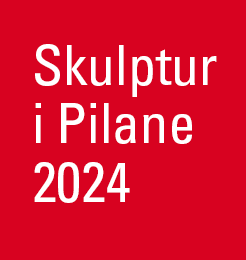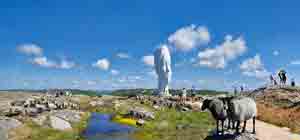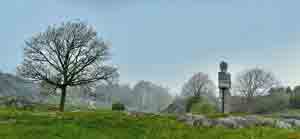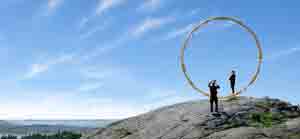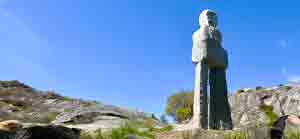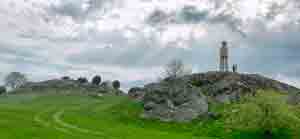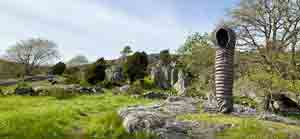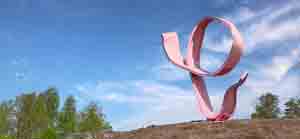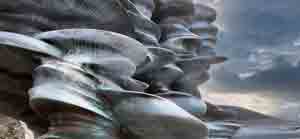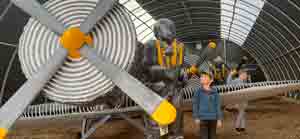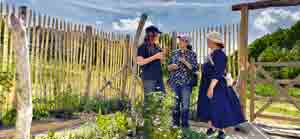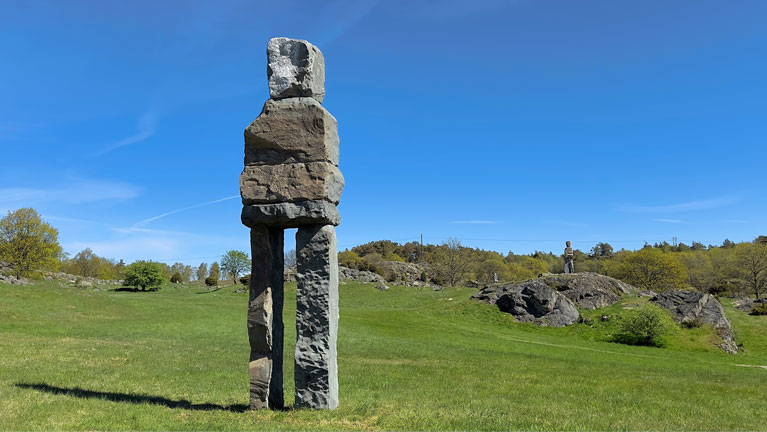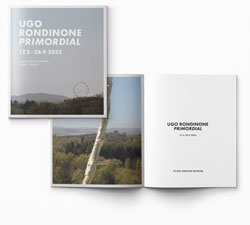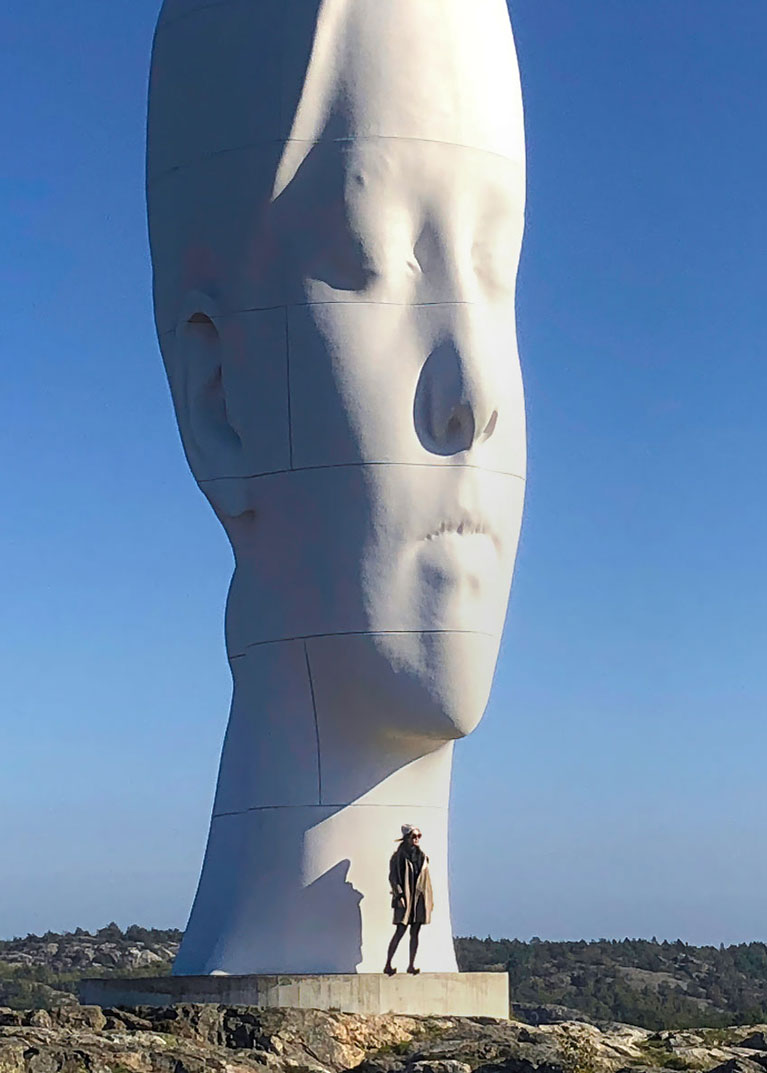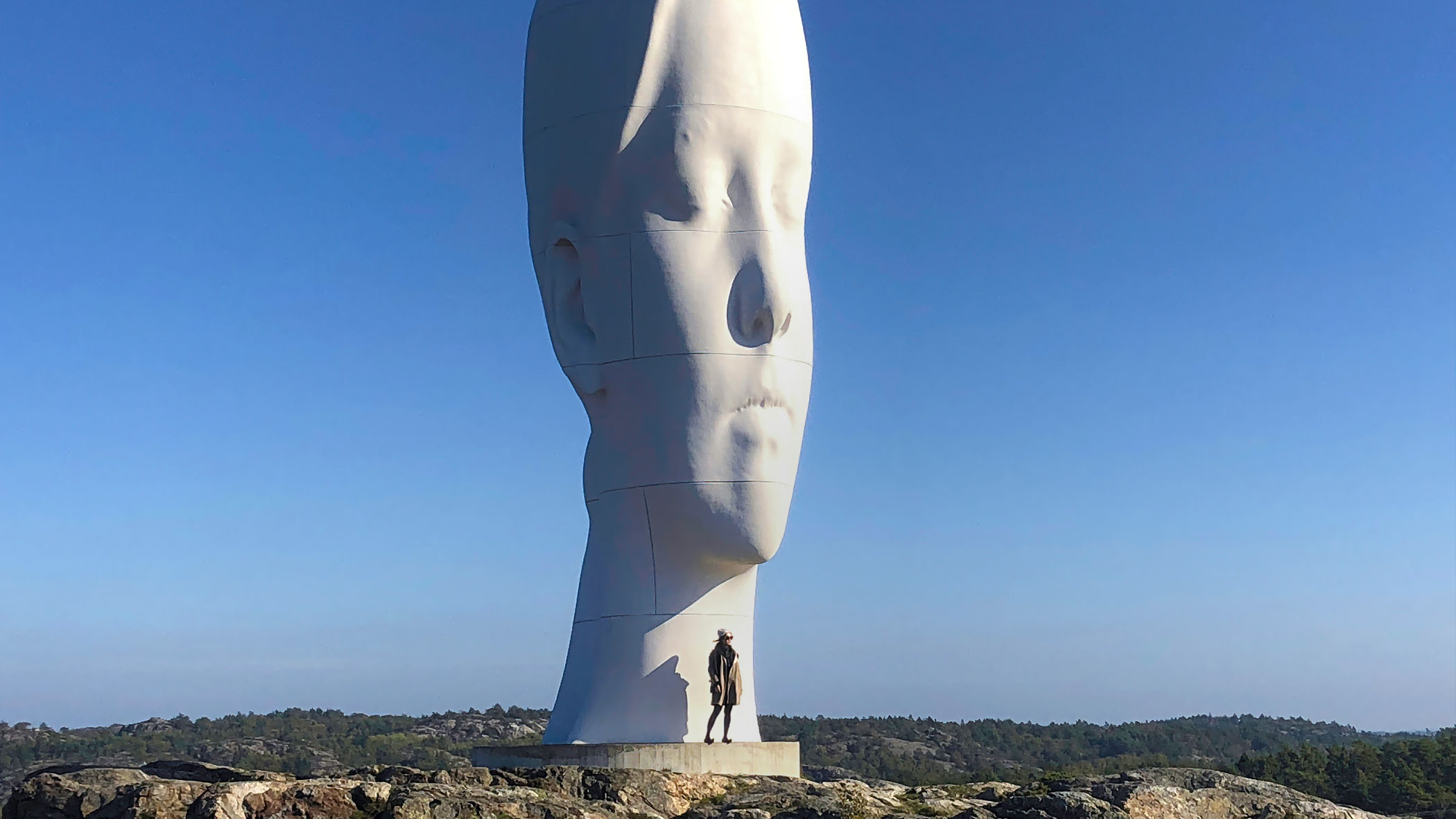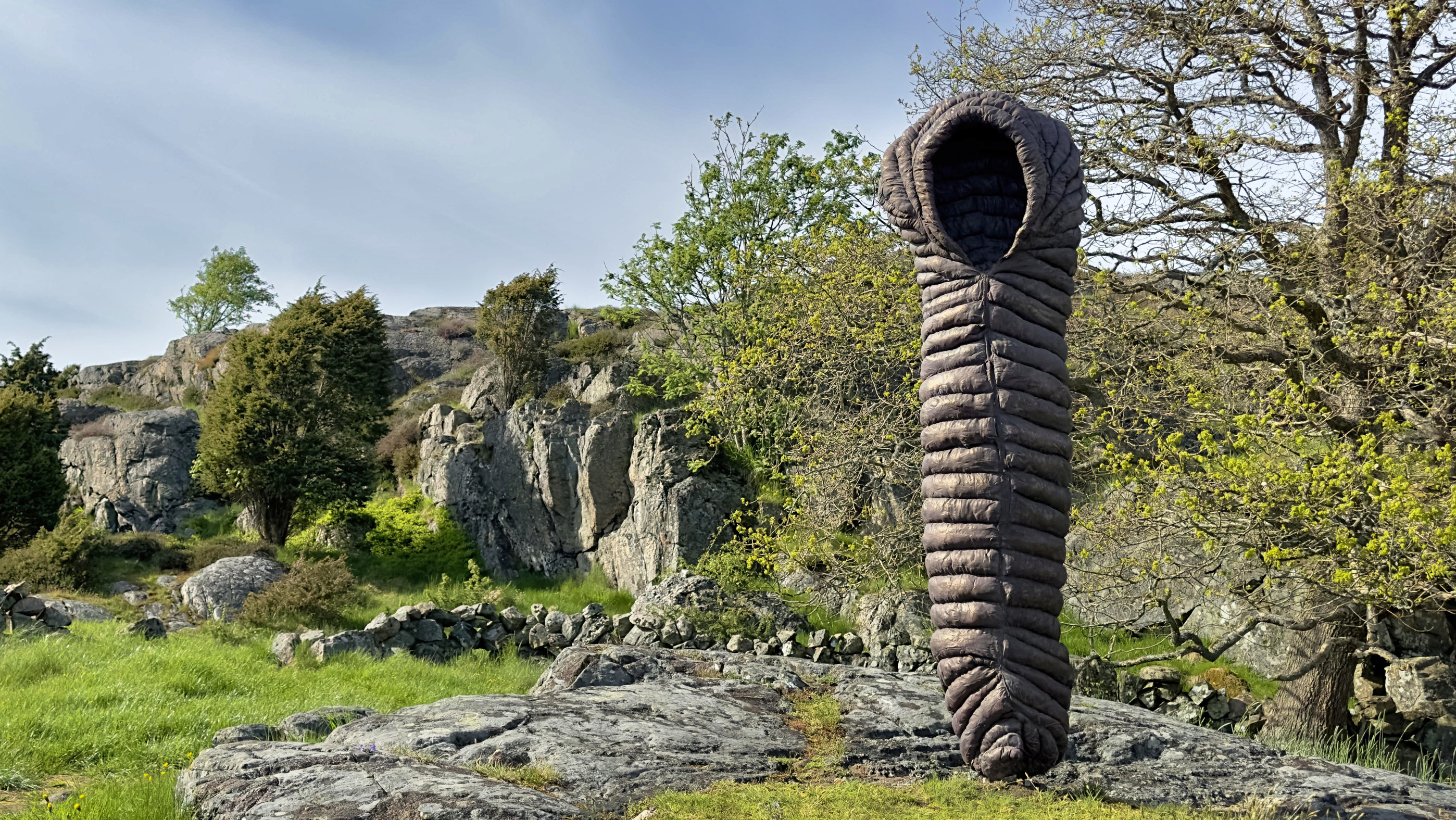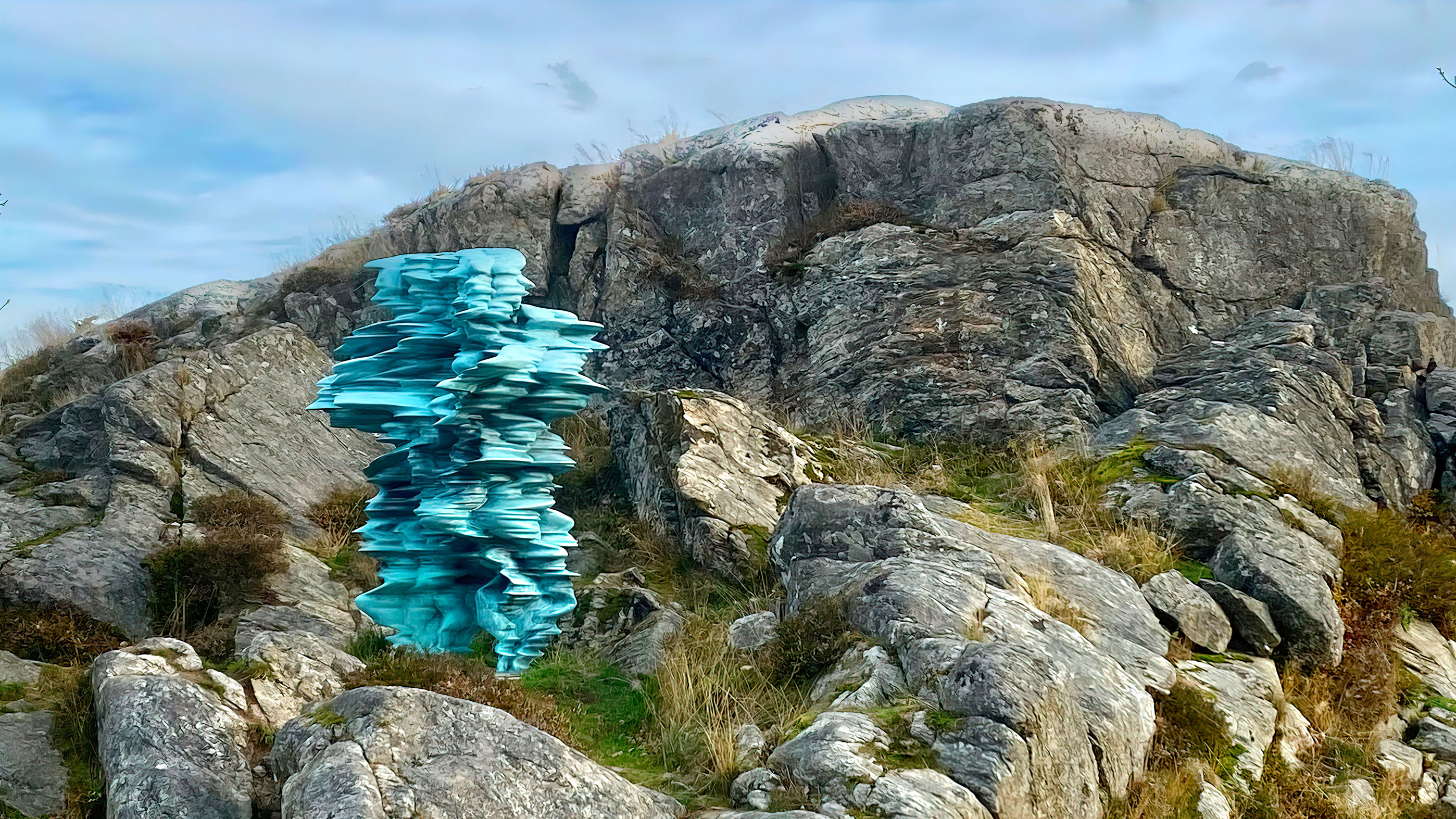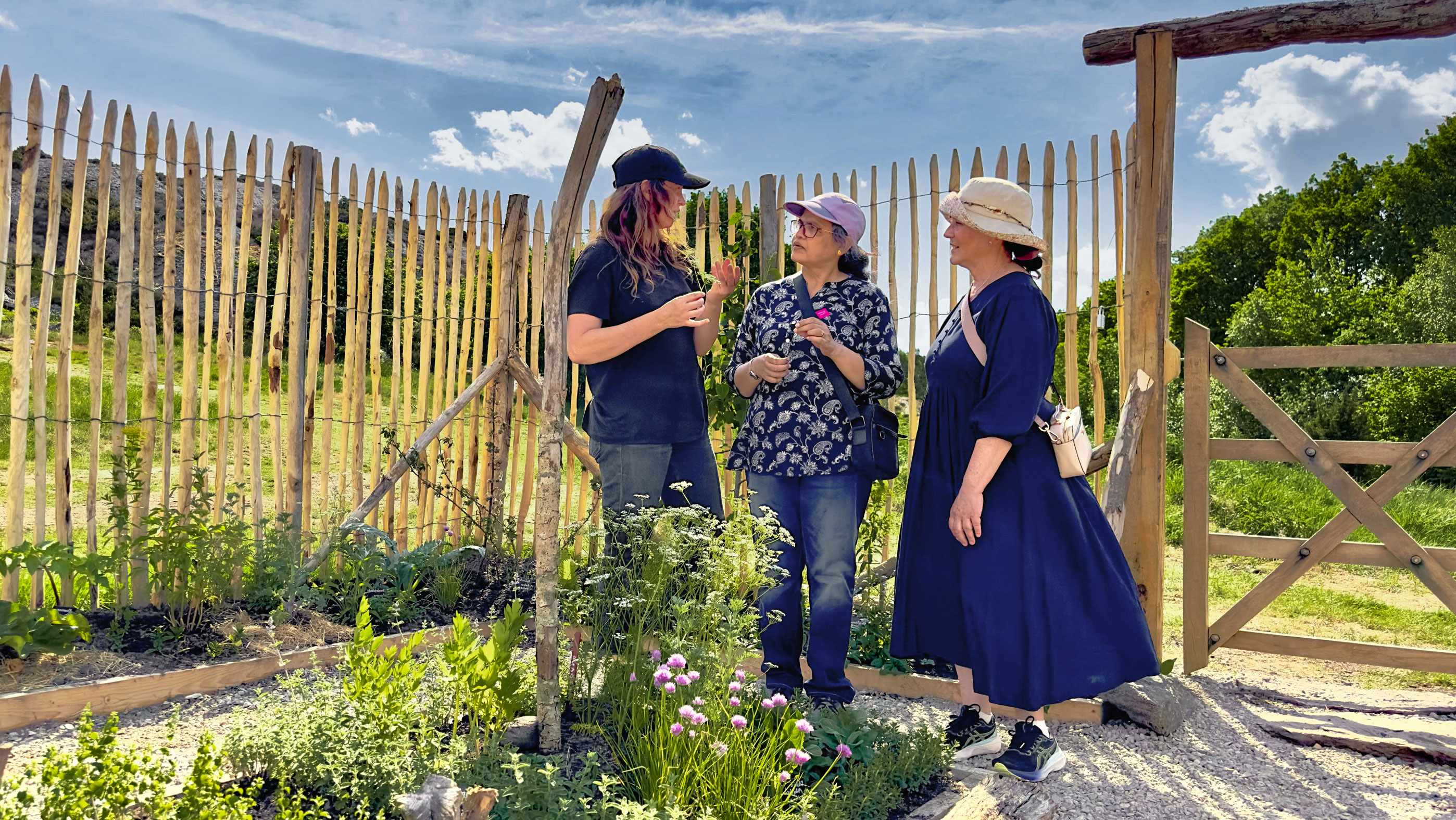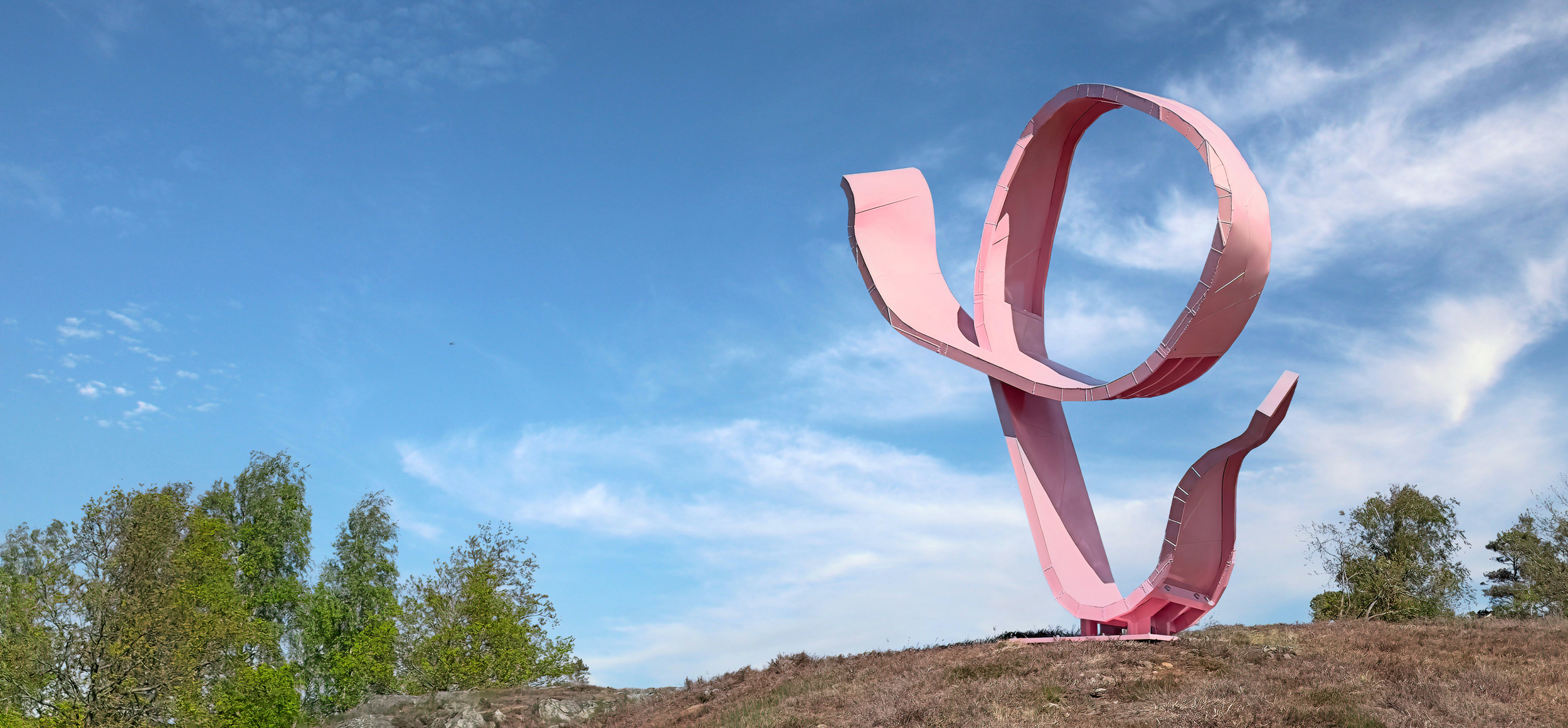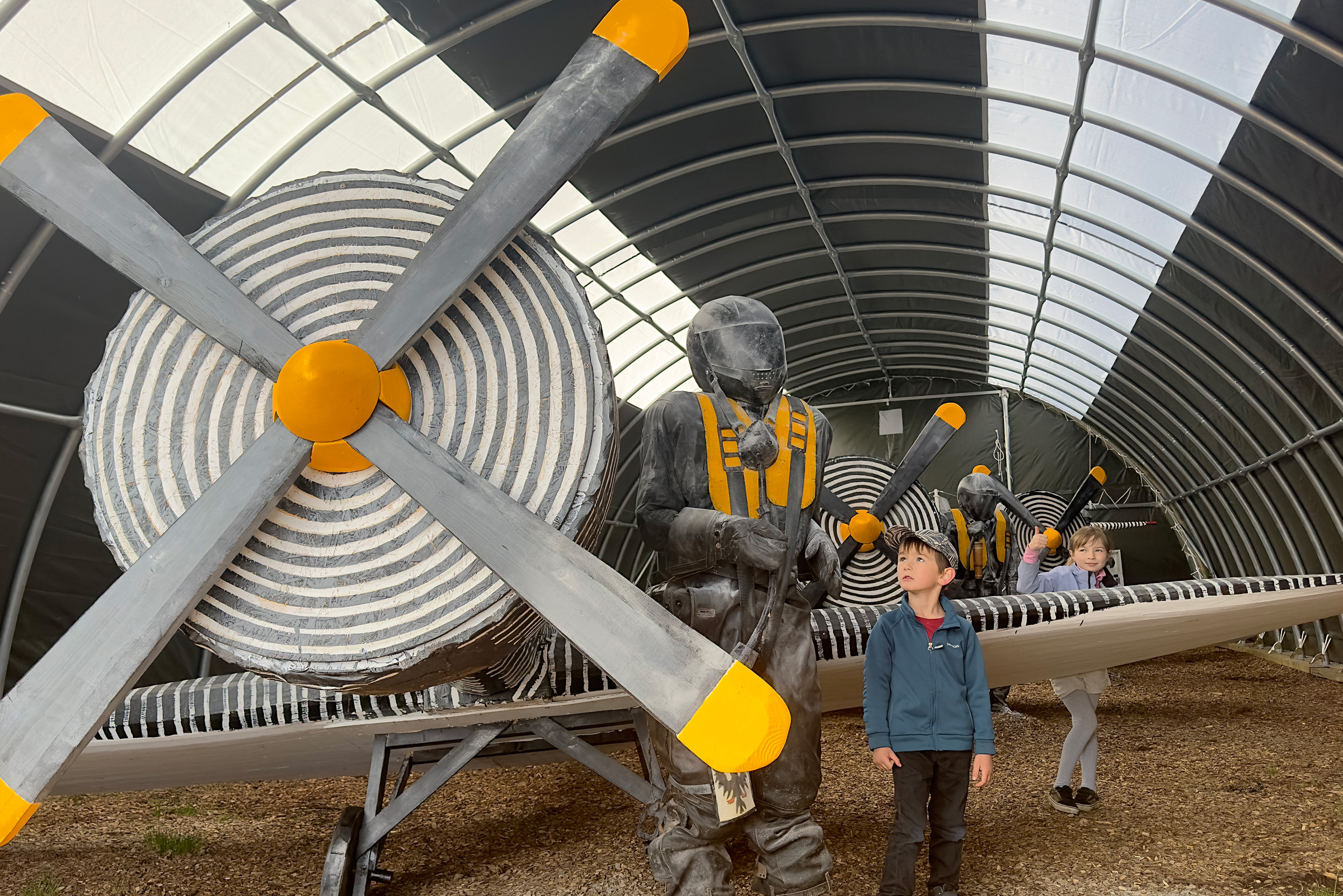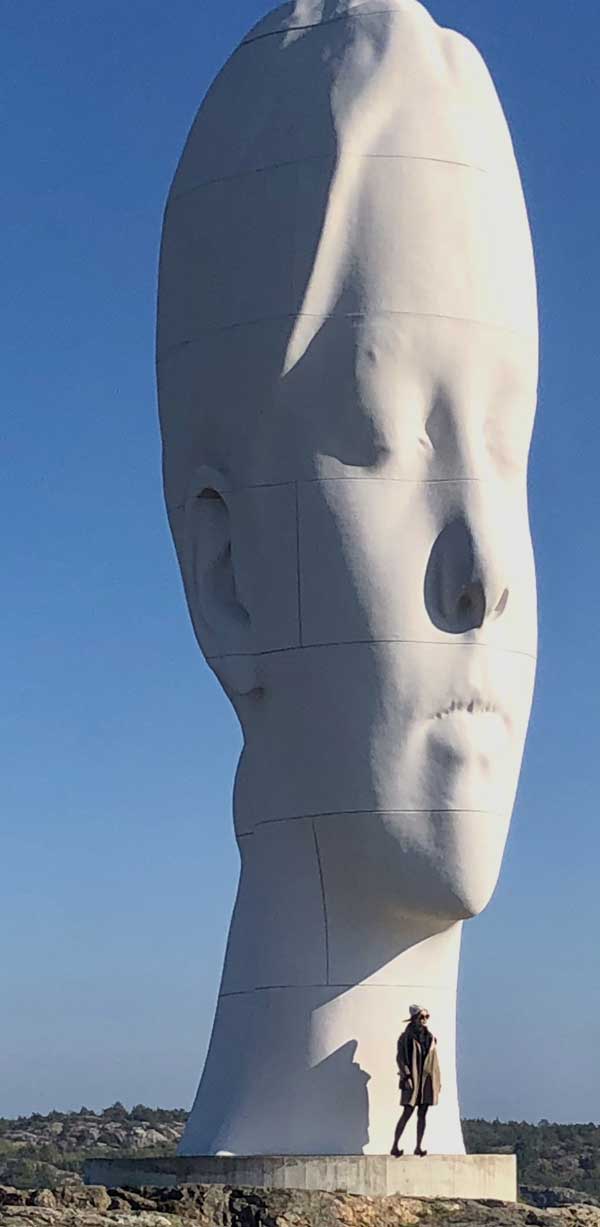
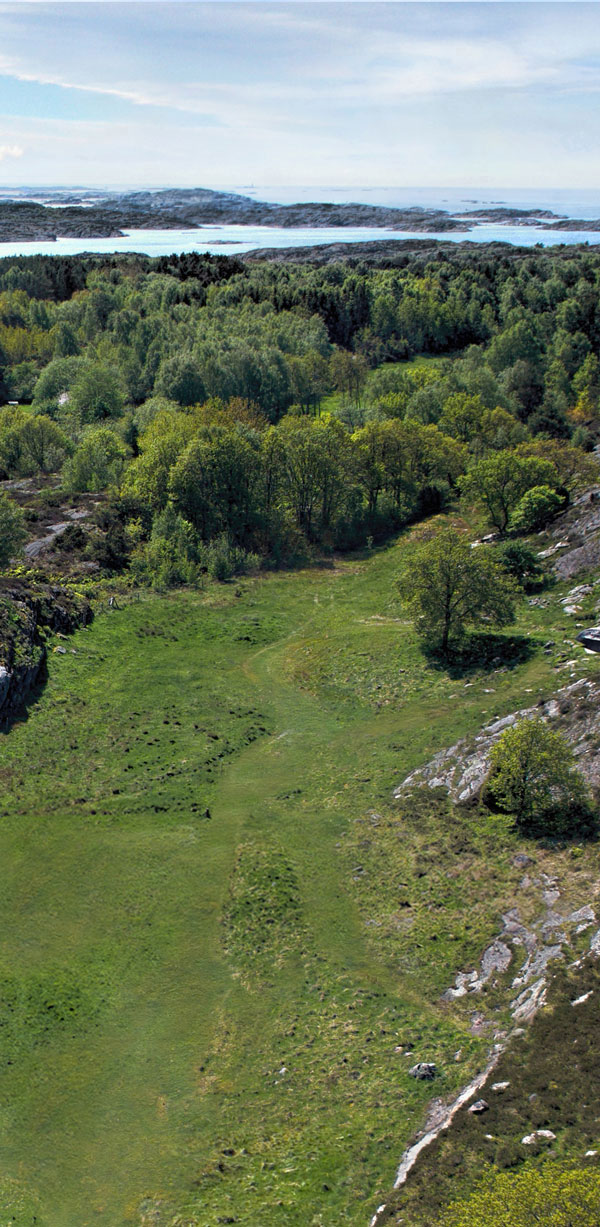
ARTISTS 2025
UGO RONDINONE
MOA ISRAELSSON
JAY GARD
GÖRAN HÄGG
TONY CRAGG
SOFIA OLOFSSON
JAUME PLENSA
From Bronze Age to contemporary art
Pilane is one of Sweden’s most unique places, with a fascinating history, a large and well-preserved Iron-Age burial ground, nearby ancient fortifications and beautiful, varied topography. Here, nature and culture are in harmony, and landscape and art are joined in a common destiny.
UGO
RONDINONE
PRIMORDIAL
"PRIMORDIAL connects us
with our sources in the natural world;
its beauties and terrors and mysteries
and consolations”
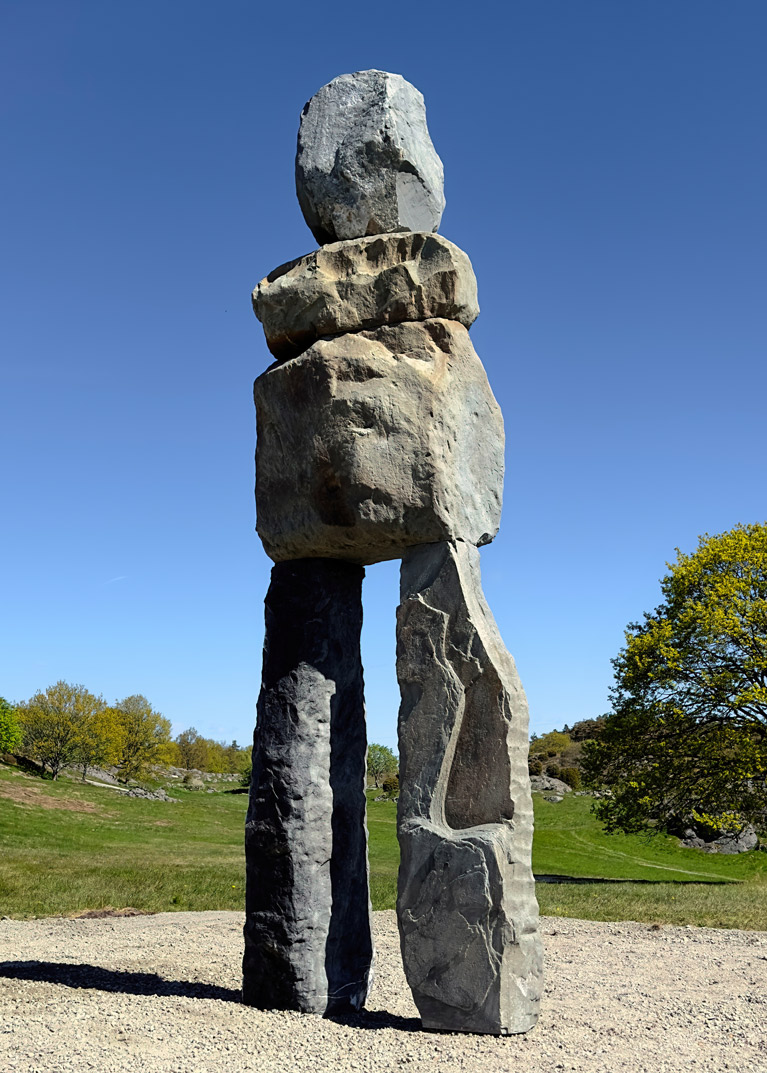
Ugo Rondinone the modern
At Pilane, you can enjoy nature and art at the same time. In summer 2025, we will host Primordial, a solo exhibition of the New York-based Swiss artist Ugo Rondinone. It features five monumental stone sculptures with individual titles: the dedicated, the eloquent, the youthful, the angelic, and the modern, all made in 2024. The presentation also includes the bronze sculpture the sun (2022).
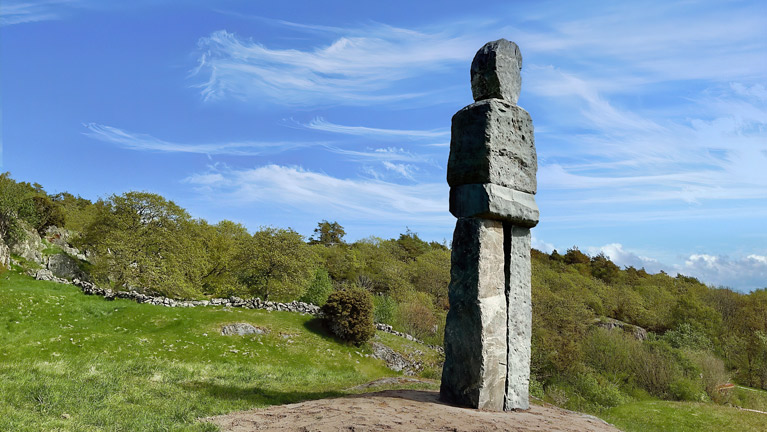
Ugo Rondinone the dedicated
Like visitors from the primordial past, these behemoths stand nearly five metres tall along the pathway through the Pilane Sculpture Park. Seemingly similar, these giants each have their distinct personalities, as their names suggest.
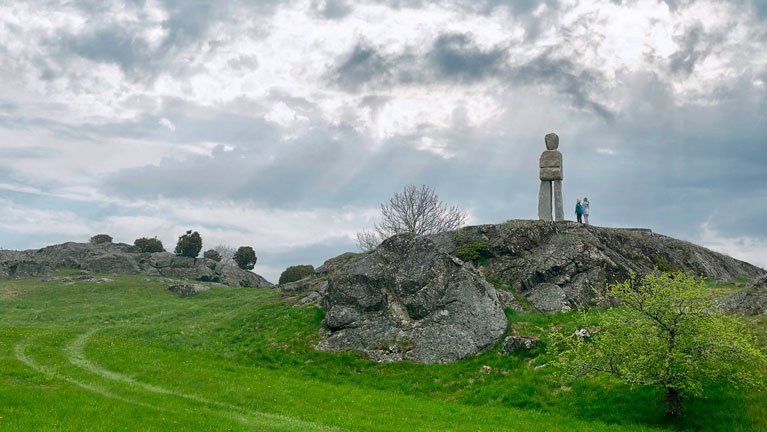
Ugo Rondinone the eloquent
Ugo Rondinone works in stone in the most archetypical way. He refrains from classical figure modelling and trusts the clarity of archaic forms. At first glance, his imagery is rough-hewn and unsentimental. Gradually, however, the truculent material reveals an astounding sensitivity and beauty, in the volumes that Rondinone chisels out of them. Some parts absorb light, while others reflect it. The veins and natural colouring of the stone surfaces resemble skin tones on these colossuses.
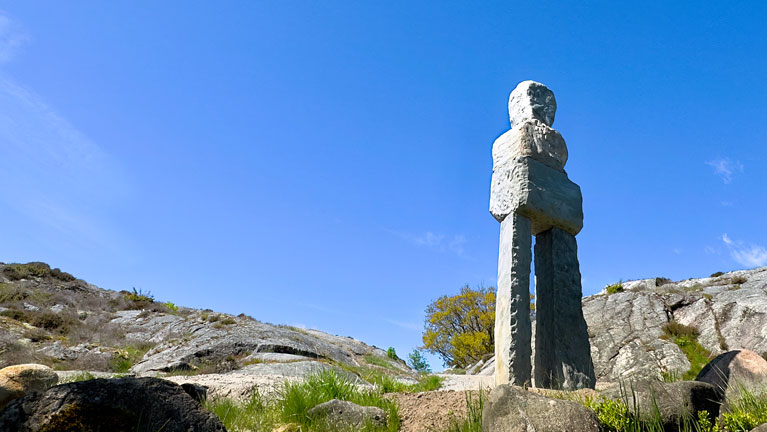
Ugo Rondinone the angelic
Ugo Rondinone’s mighty figures combine the robust with the simple, and the jagged with the fragile. Their presence in the verdure and crags near the ancient burial site is so natural that they seem like a homecoming rather than a visit.
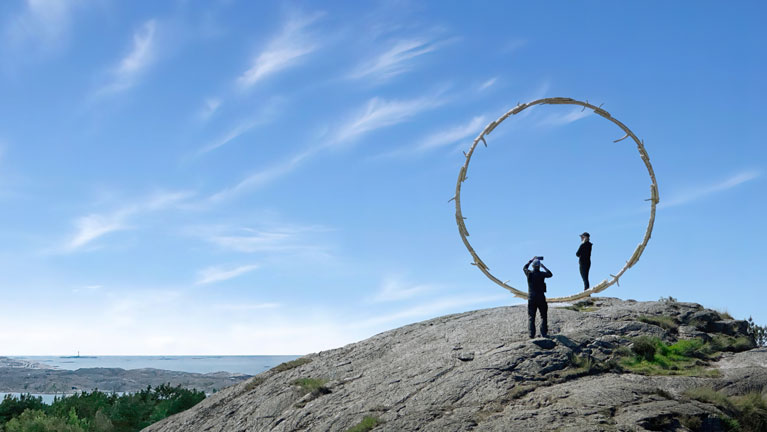
Ugo Rondinone the sun
At the top of one of Pilanes mountain peaks, Rondinones beautiful the sun is shimmering over the North Sea, the iconic lighthouse Pater Noster and a large part of the West Sweden archipelago.
Furthermore Pilane is proud to present the following artists 2025: Jay Gard, Göran Hägg, Moa Israelsson, Tony Cragg, Jaume Plensa and Sofia Olofsson.
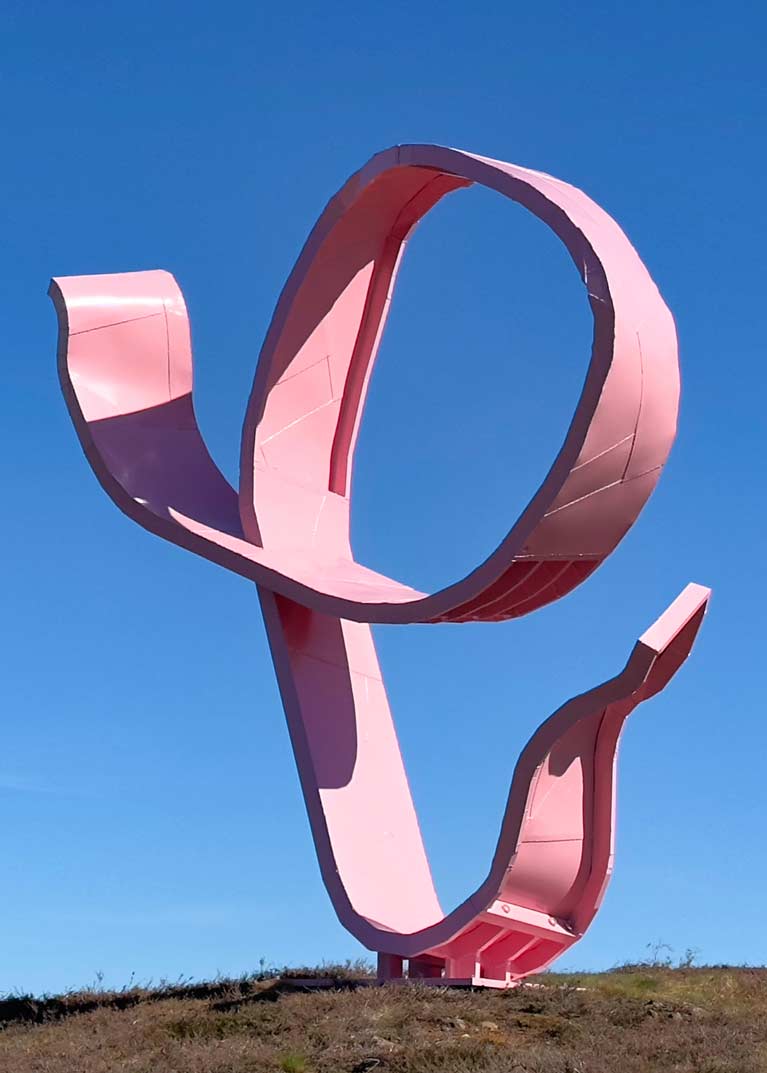
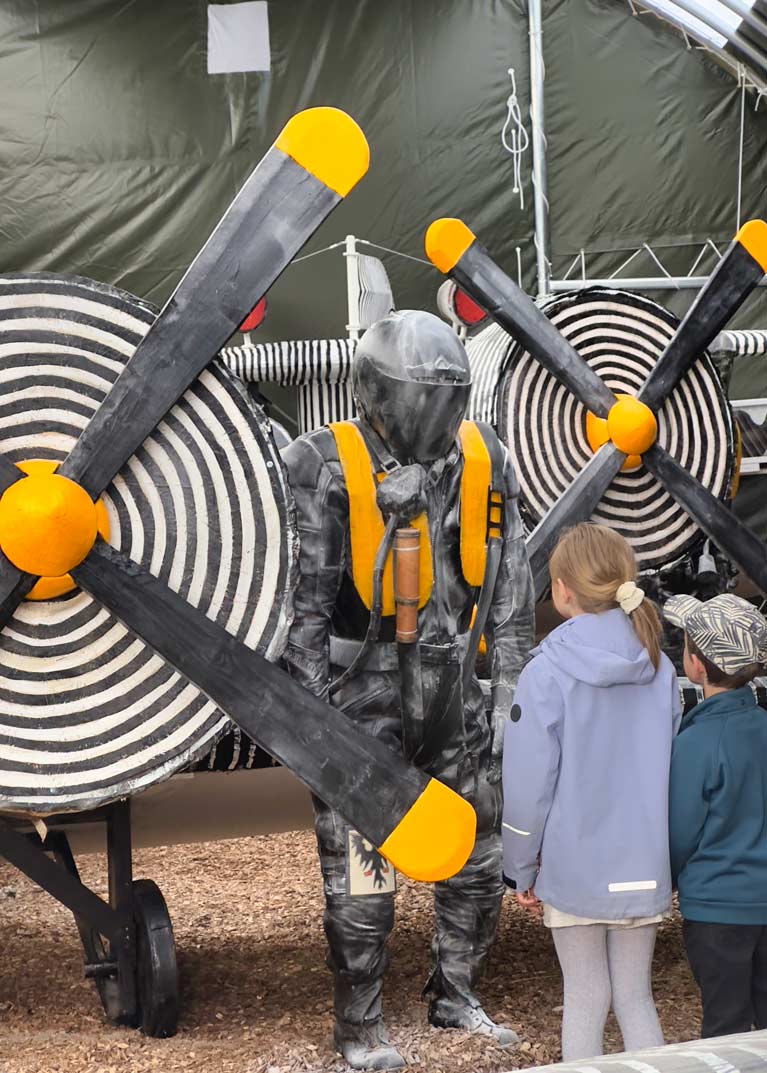
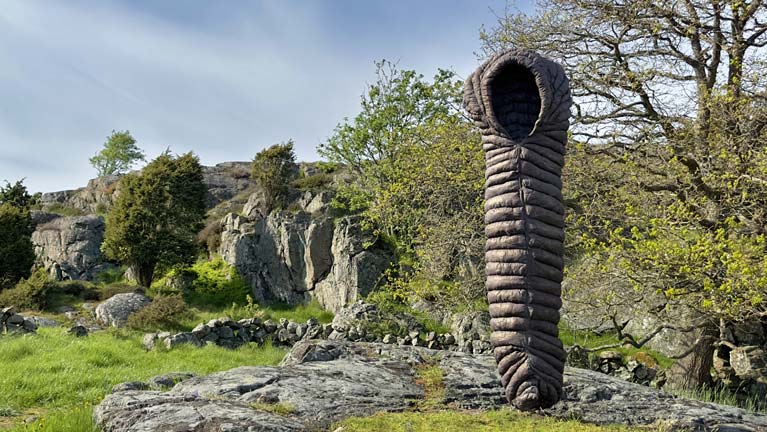
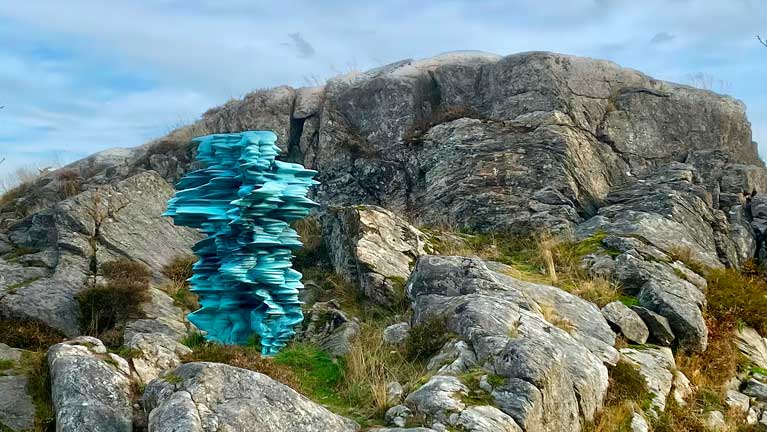
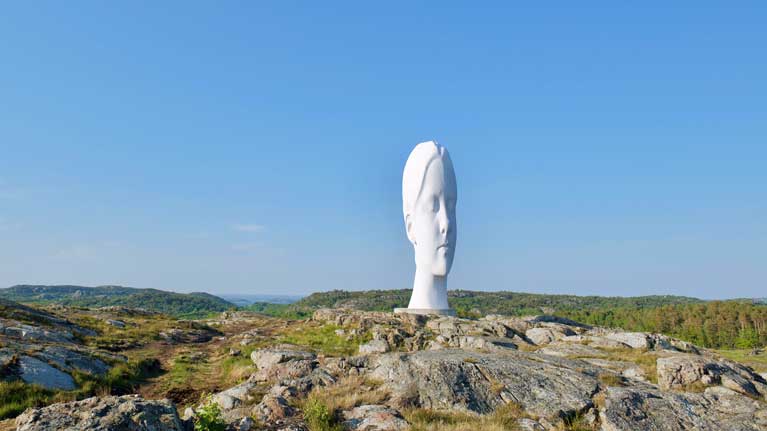

Jaume Plensa Anna
Anna, a monumental work by Jaume Plensa, is one of the world’s largest sculptures. Permanently installed on the highest rock at Pilane, it has also become a landmark on the Swedish west coast. This monochrome white figure was created specifically for Pilane and is from a series depicting young women. Each sculpture portrays a real person and is named after her. The creative process incorporates modern technology. The female heads with slightly elongated proportions are intentionally idealised. Their exquisite, contemplative faces with eyes closed convey a sense of concentration, thoughtfulness, exalted serenity and introversion. The dreamy mood sends a message of hope and infinite possibilities. Anna seems to capture and immortalise those early elusive moments that slip away when worries and experiences begin to impact on our lives.
Jaume Plensa, born in 1955 in Barcelona, finds inspiration in poetry and music, and in the people he meets. He has worked in traditional materials such as glass, steel and bronze, but also in more unusual media, including water and light. Plensa often plays with shadows, transparency and shifts in scale. He has exhibited at galleries and museums all over the world and received numerous accolades and prizes for his art. Plensa is represented at the Art Museum in Miami, Millennium Park in Chicago, Olympic Sculpture Park in Seattle, BBC Broadcasting Tower in London, Borås Fashion Center, Kulturhuset Väven in Umeå and many other collections.
jaumeplensa.com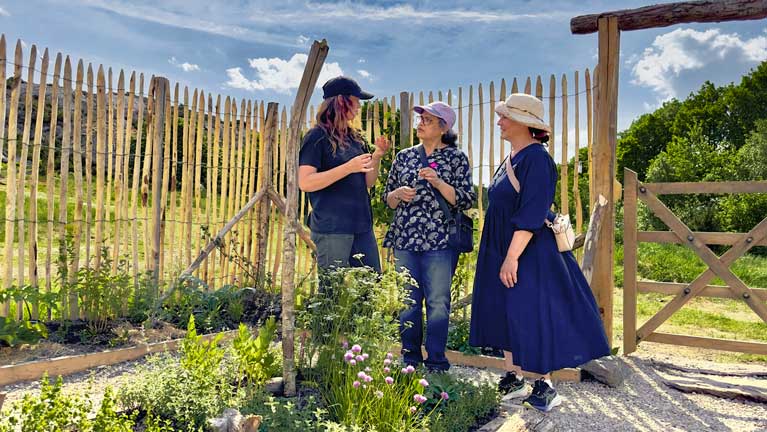
Sofia Olofsson Hortus Conclusus
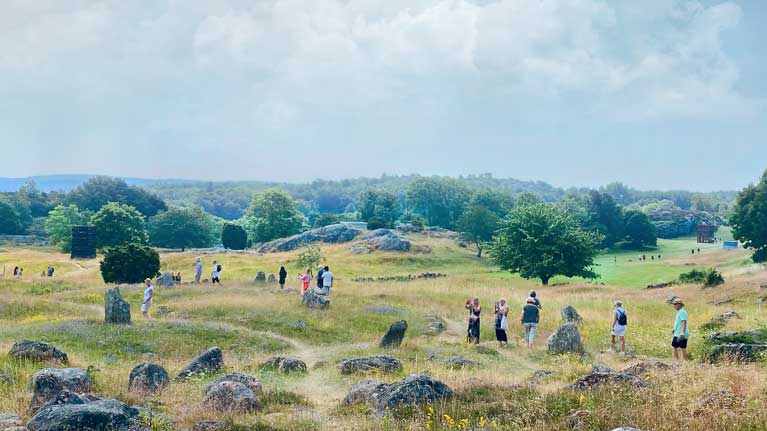
Pilane burial field
The Pilane gravesite is one of the largest in Sweden set in a stunning landscape. Read about the history of Pilane. The site is also well-known for its unique flora and fauna stemming from ancient times.
Welcome!
PILANE HERITAGE MUSEUM
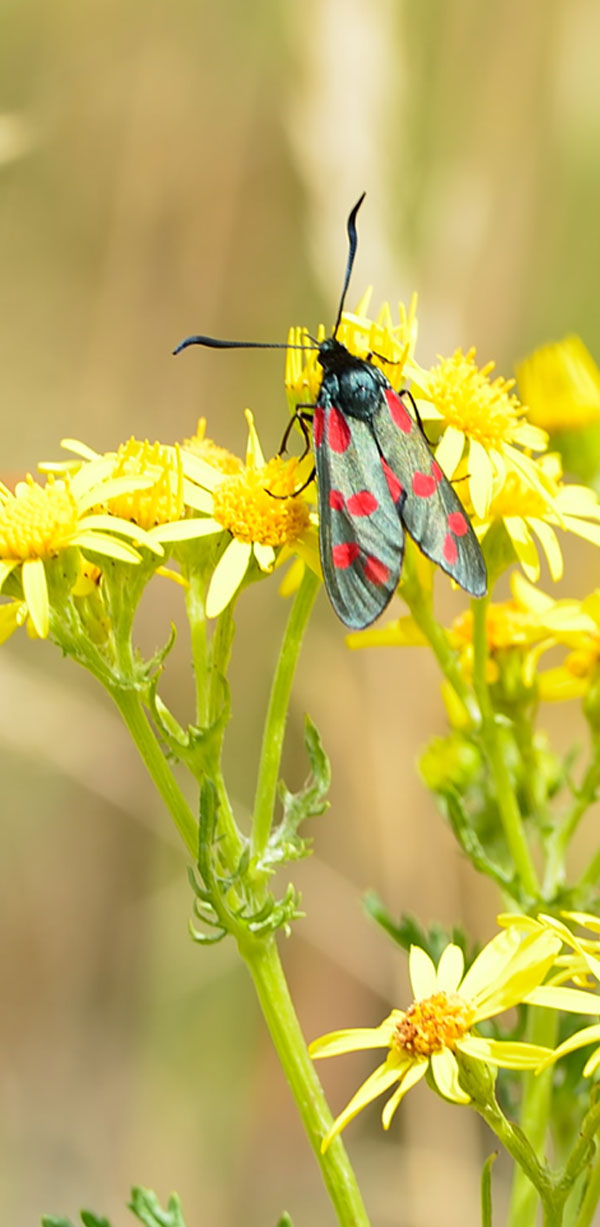
Zygaena filipendulae
